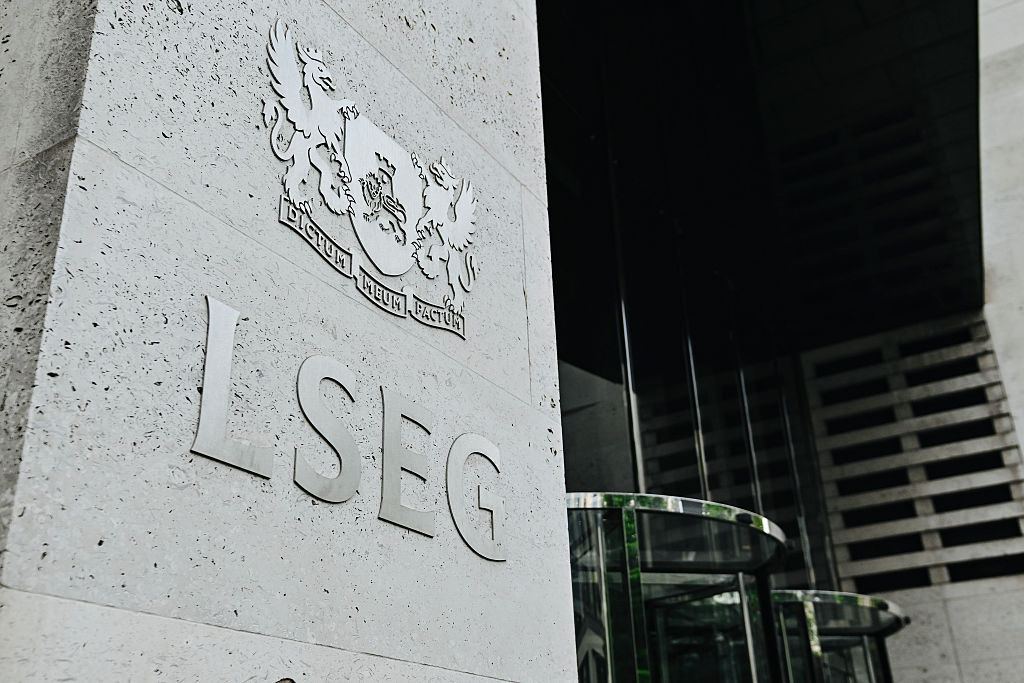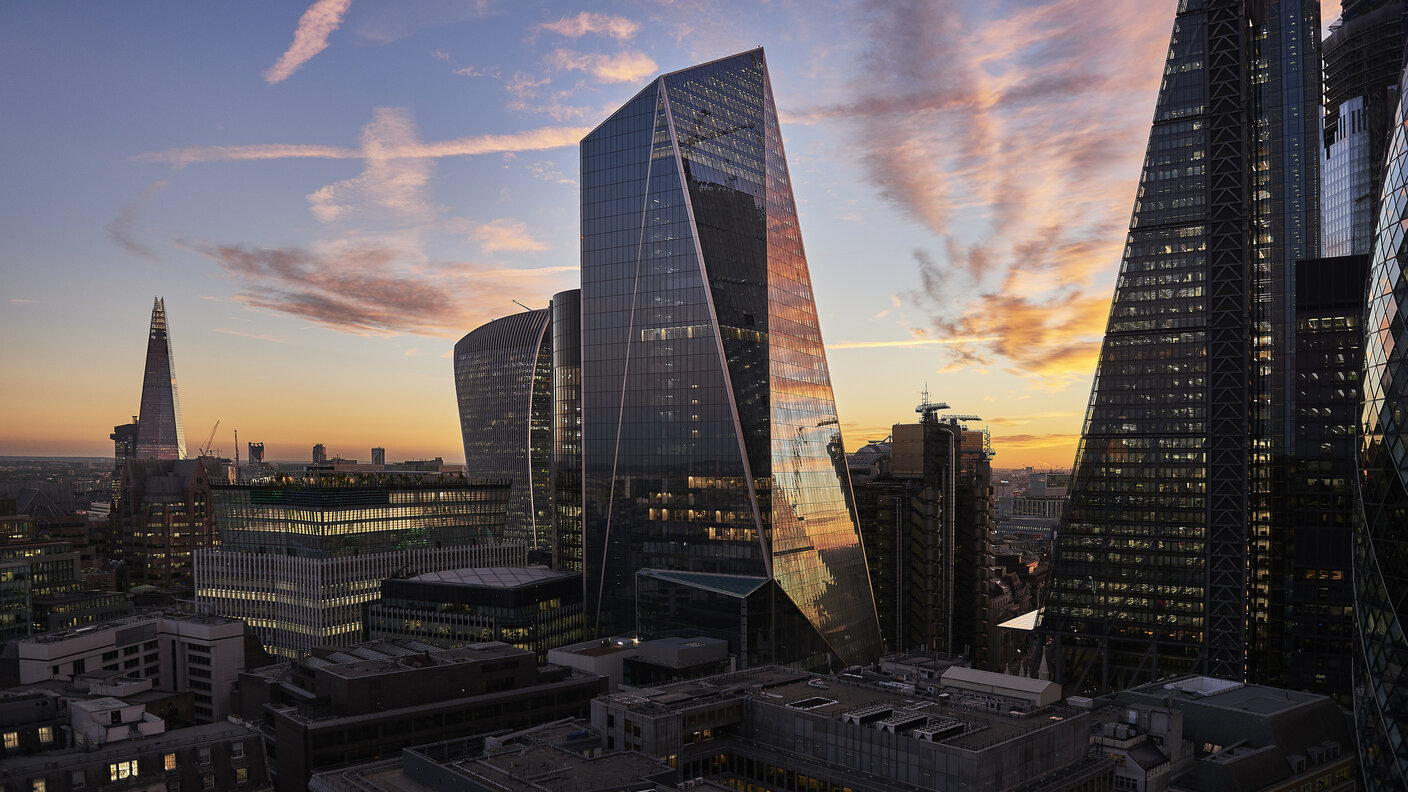Five Aim stocks to help you sidestep inheritance tax
Hold companies that qualify for Business Property Relief for two years, and your investment is 100% IHT-free. Analyst and private investor Richard Beddard recommends five of the best.

Get the latest financial news, insights and expert analysis from our award-winning MoneyWeek team, to help you understand what really matters when it comes to your finances.
You are now subscribed
Your newsletter sign-up was successful
Want to add more newsletters?

Twice daily
MoneyWeek
Get the latest financial news, insights and expert analysis from our award-winning MoneyWeek team, to help you understand what really matters when it comes to your finances.

Four times a week
Look After My Bills
Sign up to our free money-saving newsletter, filled with the latest news and expert advice to help you find the best tips and deals for managing your bills. Start saving today!

Judging by the response we get from MoneyWeek readers when we cover the topic, inheritance tax (IHT) which is charged at a rate of 40% on the part of your estate that is worth more than £325,000 (or £650,000 for a couple) when you die is probably the most loathed of all taxes, writes John Stepek.The bad news is that the IHT take hit a record high of £4.6bn for the tax year just past. The good news is that there are several ways to protect your assets.
One of the less well-known options is to invest in assets that qualify for Business Property Relief (BPR). Once a qualifying investment has been held for two years, it is 100% IHT-free. To qualify for BPR, a company cannot be listed on a recognised stock exchange, and its main business cannot be investing in other companies or property so investment trusts do not qualify, for example. Where would you find such a company? One obvious hunting ground is the Alternative Investment Market (Aim), which is not a recognised stock exchange.
Of course, the tax tail should never wag the investment dog there is no point in careful IHT planning if you only save on tax because you've lost all your money. So any stocks you invest in need to be companies you would want to buy anyway. Below, analyst and private investor Richard Beddard looks at five stocks that are appealing regardless of their BPR status.
MoneyWeek
Subscribe to MoneyWeek today and get your first six magazine issues absolutely FREE

Sign up to Money Morning
Don't miss the latest investment and personal finances news, market analysis, plus money-saving tips with our free twice-daily newsletter
Don't miss the latest investment and personal finances news, market analysis, plus money-saving tips with our free twice-daily newsletter
A word of warning: a company may currently qualify for BPR (we have checked those listed below with the IHT screening tool offered by Investor's Champion),but that could change. The key point is that it needs to qualify when your estate is passed on. So it is vital to keep a track of your Aim holdings and their status.
Also, as mentioned above, this is not the only way to manage your IHT exposure. Other methods include simply giving away assets (although if youdie within seven years, these may still count as part of your estate), or investing in agricultural land. At MoneyWeek, we think it's important for investors to be able to manage their own finances, but this is one area that, if you have an estate that is large enough and complicated enough to justify extensive IHT planning, is worth discussing with a tax specialist.
1. BrainJuicer (BJU)
Market capitalisation: £45m
Debt-adjusted price/earnings ratio (p/e): 12
BrainJuicer is a small company that does market research for giants such as Coca Cola, McDonald's and Procter & Gamble. It uses techniques drawn from the burgeoning field of behavioural science. Traditional market researchers might test whether an advertisement gets a particular message across, but BrainJuicer asks people how they feel as they watch it.
The company says that if we feel more, we buy more, an insight it used to test advertisements featuring Three's dancing pony and John Lewis's penguin, Monty. The company also tests product concepts by asking people what they think other people will buy, claiming that we're better at predicting other people's behaviour than our own.
Academics have been writing about these sorts of psychological insights for decades. But they have only recently made their way into mainstream market research. That makes BrainJuicer a pioneer in the field it has been using behavioural techniques for over a decade now, and has collected a large database of test results that helps it to determine which advertisements will achieve the highest sales.
Not so long ago this advocacy of novel market research techniques was unusual, but several other firms now offer new ways to find out what we think about advertisements and products. Established market research firms such as Millward Brown are touting behavioural testing, and technology companies are tracking our behaviour on mobile telephones and mining the data for insights.
BrainJuicer, with its extensive experience in the field, could be a beneficiary as its techniques go mainstream. But it must also contend with growing competition by maintaining the pace of innovation. Earlier this year it attempted to turn the traditional market research role on its head by launching an advertising agency, System1.
Instead of testing advertisements created by agencies (the traditional role of market research), System1 employs freelancers to make them, guided by BrainJuicer's testing. Although revenue and profit growth has slowed in recent years, BrainJuicer remains a growing, highly profitable, cash-rich company in an exciting field, and it's still run by its entrepreneurial founder John Kearon, who owns a significant stake.
2. Dewhurst (DWHT)
Market cap: £40m
Debt-adjusted p/e: 9
Dewhurst manufactures a wide range of components and systems used in lifts, cash machines, railway carriages and traffic management, and earns more than two-thirds of its revenue and profit abroad. The group traces its success back to the launch of the US81 Original Pushbutton in 1971.
The design of the stainless steel button with a chrome surround has been aped by other manufacturers, but perhaps not its quality which means that although the major elevator companies use cheaper pushbuttons in new lifts, architects and lift consultants often choose Dewhurst for refurbishment projects. The pushbutton is a fairly low-cost component, and it's worth paying more if it reduces the maintenance bill.
In the six months to end-March, Dewhurst revealed that profit had fallen by 25% year-on-year due to reduced spending on public- and private-sector infrastructure projects, and lower keypad orders. Also, about a fifth of the company's revenue comes from keypads for NCR cash machines. Dewhurst's dependence on this customer means that shareholders have become used to an element of volatility in its results. Dewhurst is also having to adapt to a longer-term technological challenge.
To accommodate large crowds, busy hotels and offices are turning to "destination dispatch" systems. People choose their destination using a keypad, touch screen, or room key and are directed to a lift going to their floor. These systems generally require fewer push buttons.
However, Dewhurst has responded to its changing market by developing the components required by the new systems, such as the hall lanterns that indicate which lift to go to. It also assembles entire control panels, buying in components such as touchscreens that it cannot make itself.
Although this means that Dewhurst must share some of the profit with the manufacturers of the underlying components, the company remains highly profitable under the majority ownership of the Dewhurst family. Brothers Richard and David have been running it since the mid-1980s, overseeing a measured expansion. Be aware that the company is quite tightly held, so the spread (the gap between the buying and selling price) can be quite wide.
3. FW Thorpe (TFW)
Market cap: £270m
Debt-adjusted p/e: 23
FW Thorpe is best known for its principal brand and largest business, Thorlux. Thorlux manufactures commercial and industrial lighting systems. Take a tour around the Thorlux factory in Redditch and you will witness a small industrial revolution taking place. Beside production lines manufacturing traditional fluorescent lighting systems by hand, newer robotic lines assemble light-emitting diode (LED) systems. The principal components the LEDs are soldered to printed circuit boards in a cleanroom in a corner of the factory. The cleanroom is less than three years old.
In factories, shops, schools, offices, hospitals, and on our streets, old-style fluorescent light bulbs are being replaced by these more expensive, but longer-lasting, more energy-efficient LED lighting systems. LED systems are much more sophisticated than their forebears. For example, they come packaged with electronics that can control the light level depending on whether there are people moving nearby and the level of ambient light.
Other FW Thorpe businesses manufacture more specialised lighting, for roads and tunnels, streetlights, signs, and retail displays. Today, more than half of the company's overall sales by value are LED lighting systems, but the group must still support customers who have yet to convert to the new technology. The company blames its lower profitability in recent years on the cost of developing and maintaining two product ranges, LED and incandescent.
However, three factors mitigate this decline. Firstly, Thorpe still achieves enviable levels of profitability its return on capital in its last full financial year was 22%, the same as the previous two years. Secondly, as Thorpe retires its older products, profitability should improve. Finally, the company is focused on cutting the cost of the LED components it buys in. The adoption of LED lighting is happening very quickly and Thorpe admits it rushed to develop new products, not always cost effectively.
But as the cost of LEDs comes down, profitability should improve too. William Thorpe, who founded Thorlux in 1936, might be surprised if he were to return and see the factory now, but his grandson, Andrew Thorpe, who is the company's chairman and joint chief executive, appears to be guiding FW Thorpe effectively through a potentially difficult transition. Again, the stock is tightly held so be aware of the spread when looking to buy or sell.
4 James Halstead (JHD)
Market cap: £850m
Debt-adjusted p/e: 24
Twenty-four times earnings is a high price to pay for a share. Earnings are the profits left over for shareholders after all costs. If you divide the earnings attributable to each share by the share price and express it as a percentage, you get a revealing figure: the earnings yield. James Halstead's earnings yield is a fraction over 4%. In theory, this is the current return on an investment at today's price.
In practice, it is a very blunt measure, because companies rarely return all their profit to investors, usually holding some back to invest in the business. If the business grows, profit, and thus returns, will be higher. But the high price investors are prepared to pay for shares in James Halstead higher than any other company in this selection tells us that shareholders expect the company to keep growing.
They may well be right. James Halstead has grown revenue relentlessly for three decades and it's very profitable. It makes vinyl flooring with specialist properties that dampen sound, resist chemicals and fire, and guarantee a non-slip surface. The flooring is laid in factories, shops, hospitals, conference centres, cruise liners and railway carriages from the Scott Base in Antarctica to the Svalbard Hotel in Spitsbergen, an island in the Arctic Circle almost flush with the northern half of Greenland. Halstead claims to have shipped flooring to countries covering 98% of the earth's land surface.
It created its most significant brand, Polyflor, in the 1930s. Its founder, Geoffrey Halstead, and his descendents who still run the company have invested continuously to improve the products and the reputation of its brands among building contractors, architects and specifiers. While the company has much larger competitors, they are less specialised and can't match James Halstead's sustained profitability. Based on the company's half-year statement in March, it would be a big surprise if in September, when James Halstead reports its full-year results, it has not grown once again.
5. Solid State (SOLI)
Market cap: £25m
Debt-adjusted p/e: 9
Electronics manufacturer and distributor Solid State has put its shareholders through the emotional wringer. Two years ago the company announced that it was part of a consortium that had been awarded (by its standards) a massive contract with the Ministry of Justice (MoJ) to develop electronic tags for convicted law-breakers. The dream began to turn into a nightmare late last year, as the contract was first delayed, and then terminated when the MoJ decided to use an off-the-peg solution instead.
However, while long-term shareholders would have experienced exuberance as the share price took off, and dismay as it later crashed, for any investors considering buying shares now, it's as though the nightmare never happened. Solid State received a one-off payment to settle the contract, which it immediately spent on Creasefield, a manufacturer of battery packs. Although Creasefield made a small loss in the year to March 2016, Solid State expects it to return to profit this year, helped by co-operation in design, engineering and sales with its existing successful battery business.
The battery business is part of Steatite, the manufacturing arm of Solid State. The company also distributes electronic components through Solid State Supplies. Both businesses are in good shape due to decisions taken well over a decade ago.
While many manufacturers of electronic equipment chose to relocate their operations in China and other low-cost economies in the 2000s, Solid State chose to specialise instead, focusing on high-value rugged computers, batteries, radios and components especially designed for use in the field. Because of exacting specifications, and the regulations required to handle dangerous materials and sensitive information, it's preferable and sometimes necessary to manufacture this equipment in the UK.
As far as tagging goes, Solid State retains the intellectual property it developed and it is working out what to do with it. But even if the company never makes a profit from tagging, business as usual is no bad thing.
Get the latest financial news, insights and expert analysis from our award-winning MoneyWeek team, to help you understand what really matters when it comes to your finances.
Richard Beddard founded an investment club before joining Interactive Investor as an editor at the height of the dotcom boom in 1999. in 2007 he started the Share Sleuth column for Money Observer magazine, which tracks a virtual portfolio of shares selected for the long-term by Richard. His career highlights include interviewing Nobel prize winners, private investors and many, many company executives.
Richard is freelance writer who invests in company shares and funds through his self-invested personal pension. He has worked as a teacher and in educational publishing, and is a governor at University Technology College, Cambridge. He supports the Livingstone Tanzania Trust, a charity supporting education and enterprise in Tanzania.
Richard studied International History and Politics at the University of Leeds, winning the Drummond-Wolff Prize for "distinguished work in the field of international relations".
-
 MoneyWeek Talks: The funds to choose in 2026
MoneyWeek Talks: The funds to choose in 2026Podcast Fidelity's Tom Stevenson reveals his top three funds for 2026 for your ISA or self-invested personal pension
-
 Three companies with deep economic moats to buy now
Three companies with deep economic moats to buy nowOpinion An economic moat can underpin a company's future returns. Here, Imran Sattar, portfolio manager at Edinburgh Investment Trust, selects three stocks to buy now
-
 London Stock Exchange gets go-ahead to run Pisces private stock market
London Stock Exchange gets go-ahead to run Pisces private stock marketThe Pisces market will allow investors to buy and sell shares in private companies. But how will it work, when will it launch, and who is allowed to use it?
-
 James Halstead is a family firm going cheap but should you buy?
James Halstead is a family firm going cheap but should you buy?James Halstead will rebound from a weak patch, while tax changes would be a buying opportunity
-
 Aim ISAs celebrate their 10th anniversary: which stocks have performed best?
Aim ISAs celebrate their 10th anniversary: which stocks have performed best?We look at how Aim ISAs work, how the alternative investment market has changed over the past decade, the most popular stocks - and which ones have performed best.
-
 Small companies with big potential
Small companies with big potentialMichael Taylor of Shifting Shares reviews his 2023 picks and highlights more promising minnows.
-
 Look beyond the blue chips for the best bargains in British income stocks
Look beyond the blue chips for the best bargains in British income stocksTips A professional investor tells us where he’d put his money. This week: Chris McVeyof the FP Octopus UK Multi Cap Income Fund highlights three favourites.
-
 4 small tech stocks for your portfolio
4 small tech stocks for your portfolioTips The UK market has never been considered a fertile hunting ground for tech stars. But there are plenty of promising companies beyond the old economy, says Michael Taylor of Shifting Shares
-
 3 shares to buy yielding as much as 7% to lower your IHT bill
3 shares to buy yielding as much as 7% to lower your IHT billTips Chris Boxall of Fundamental Asset Management highlights three high-yielding shares to buy that could help lower your IHT bill.
-
 Invest in space: the final frontier for investors
Invest in space: the final frontier for investorsCover Story Matthew Partridge takes a look at how to invest in space, and explores the top stocks to buy to build exposure to this rapidly expanding sector.
